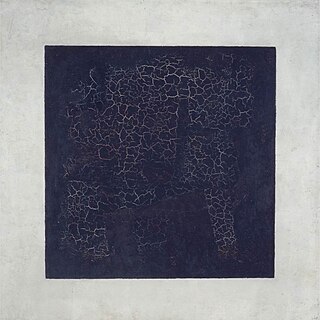See also
- Hertog (surname), Dutch surname of the same origin
- Hartog v. Colin & Shields – 1939 case in contract law
- Den Hartog Peak, Antarctic mountain named after glaciologist Stephen Den Hartog
Hartog and de/den Hartog(h) are Dutch surnames meaning "(the) duke" (modern Dutch hertog). [1] Hartog is also a Dutch Jewish given name and surname equivalent to German Herzog and Hirsch, derived from hert (Dutch for "deer"). [1] People with these names include:

Schwarz is a common surname, derived from the German schwarz, pronounced[ˈʃvaʁts], meaning the color black. Czech female form is Schwarzová. Notable people with the surname include:
Schaefer is an alternative spelling and cognate for the German word schäfer, meaning 'shepherd', which itself descends from the Old High German scāphare. Variants "Shaefer", "Schäfer", the additional alternative spelling "Schäffer", and the anglicised forms "Schaeffer", "Schaffer", "Shaffer", "Shafer", and "Schafer" are all common surnames.
De Groot is a surname of Dutch origin.
Behr is a given name and surname that derives from the German Bär (bear). Older forms of the name, Bela and Belo, occur in the Memorbuch. The diminutive forms Baeril(Berel) and Baerush(Berush) are used among Polish and Russian Jews.
Stern is a surname which can be of either German/Yiddish or English language origin, though the former case predominates.
Gross or Groß in German is the correct spelling of the surname under German orthographic rules. In Switzerland, the name is spelled Gross. Some Germans and Austrians also use the spelling with "ss" instead of "ß".
Marcus Manuel Hartog was an English educator, natural historian, philosopher of biology and zoologist in Cork, Ireland. He contributed to multiple volumes of the Cambridge Natural History.

Sir Philip Joseph Hartog was a British chemist and educationalist who undertook this role in England and India.
Meyer is an originally German, Dutch and Jewish surname. With its numerous variants, it is a common German surname. Its original meaning in Middle High German is from mei(g)er, "manager ", derived from Latin maior domus, i.e. "headman of a household", later on also meaning "tenant" or "(free) farmer". It is therefore a rough equivalent of the English Steward, which has also been turned into surnames such as Stuart.
Numa Edward Hartog was a Jewish British mathematician who attracted attention in 1869 for graduating from Cambridge University as Senior Wrangler and Smith's Prizeman but as a Jew had not been admitted to a fellowship. Hartog's case led to the passage of the Universities Tests Act of 1871, which removed religious barriers to holding fellowships at Oxford and Cambridge.

Dirk is a male given name of Dutch origin. It is a traditional diminutive of the Dutch name Diederik. The meaning of the name is "the people's ruler", composed of þeud ("people") and ric ("power"). Dirk may also be a surname. It is cognate to French Thierry, German Dietrich and Gothic Theoderic.
Abraham is a surname. It can be of Jewish, English, French, German, Dutch, Irish, Welsh, Cornish, Breton, Lebanese, Syrian and other origins. It is derived from the Hebrew personal name Avraham, borne by the biblical patriarch Abraham, revered by Jews as a founding father of the Jewish people, and by Muslims as founder of all Semitic peoples. The name is explained in Genesis 17:5 as being derived from the Hebrew av hamon goyim "father of a multitude of nations". It was commonly used as a given name among Christians in the Middle Ages, and has always been a popular Jewish given name. The English name Abram is often a short form of Abraham, but it can also be a shortened version of Adburgham, which comes from a place name. As an Irish name, it was adopted as an approximation of the Gaelic name Mac an Bhreitheamhan "son of the judge". The German name Brahm is often a short form of Abraham, but it can also be a topographic name signifying someone who lived near a bramble thicket. The name Braham has been used as an Anglicization of both Abraham and its patronymic Abrahams by Ashkenazi Jews in the British Isles. Abraham has also been used as an Anglicization of the equivalent Arabic surname Ibrāhīm. It is also found as a given name among Christians in India, and has come to be used as a family name among families from Kerala.
Van der Burg is a Dutch toponymic surname meaning "from the fortress / stronghold". Variations are Van de Burg, Van den Burg, Van den Burgh and Van der Burgh. Anglicized versions of these names show a variety of agglutinations and capitalizations. Notable people with the surname include:
Hamburger is a German surname, meaning "someone from Hamburg". Notable people with the surname include:

Héléna Arsène Darmesteter, born Héléna Hartog was a British portrait painter.
Hertog or Den Hertog is a Dutch surname meaning "(the) duke". Other variants include Hertogh, Hertoghe, and Hertogs. Notable people with the surname include:

Marion Moss Hartog was an English Jewish poet, author, and educator. She was the editor of the first Jewish women's periodical, The Jewish Sabbath Journal.
Cécile Sarah Hartog (1857–1940) was an English composer and pianist, born in London. She was the daughter of French school teacher, author and editor Marion Moss Hartog, and her siblings were the artist Héléna Arsène Darmesteter, natural historian Marcus Hartog, mathematician Numa Edward Hartog, and the chemist Philip Hartog. The mathematician and engineer Hertha Ayrton was her cousin.